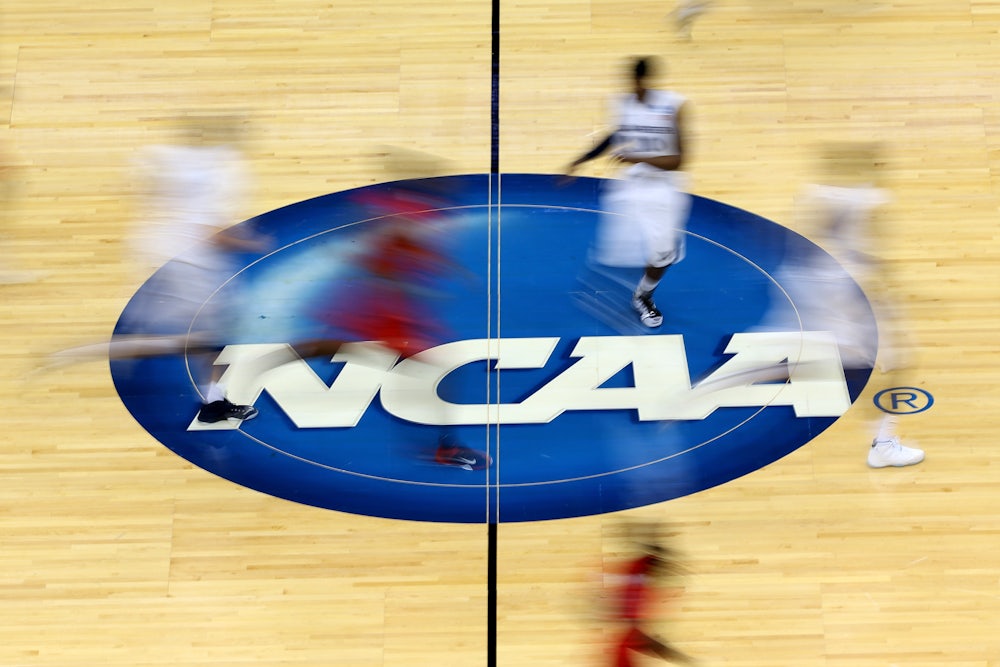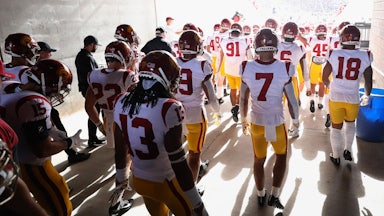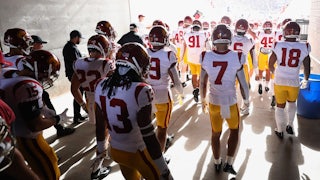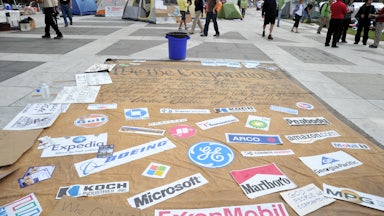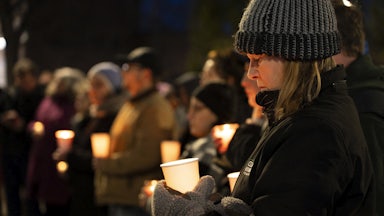The Supreme Court’s unanimous decision on Monday that the National Collegiate Athletic Association cannot restrict certain education benefits from student athletes—such as free computers, internships, postgraduate scholarships—doesn’t pose much of a revolutionary threat against the organization’s concept of amateurism in the short term. But give it a few years. The high court’s holding in NCAA v. Alston may very well come to be seen as the beginning of the end of the exploitation of college athletes.
The NCAA, Justice Neil Gorsuch wrote for the majority, “seeks immunity from the normal operation of the antitrust laws,” something the court could not condone given the fact that “this suit involves admitted horizontal price fixing in a market where the defendants exercise monopoly control.”
“To the extent [the NCAA] means to propose a sort of judicially ordained immunity from the terms of the Sherman Act for its restraints of trade—that we should overlook its restrictions because they happen to fall at the intersection of higher education, sports, and money—we cannot agree,” Gorsuch continued.
The ruling itself is narrow. The decision opens the door to some additional forms of compensation for college athletes, including educational tools, graduate studies, and even study abroad programs. But it doesn’t touch the most essential question facing the future of college athletics: actual compensation for athletes. As it stands, the NCAA and its member schools rake in billions of dollars in ticket sales, merchandise, and (most importantly) broadcasting and licensing deals; college coaches are paid millions and are often the highest-paid public employees in their states. And yet this entire plutocratic farce is built entirely on the back of unpaid labor—college athletes are “compensated” with scholarships, though the most profitable sports programs at the top tier of schools are often so demanding they leave little time for academics. (I am reminded of a college cross-country coach who told me, “In college you only have time for two of three things: academics, athletics, and socializing.” That was at Oberlin College, and the number of ESPNs will have to swell into the double digits before its student athletes find their way onto a Rivalry Week special.)
Nevertheless, the Supreme Court has put an end to this arrangement in sight. In a blistering concurring opinion, Justice Brett Kavanaugh—yes, that Brett Kavanaugh—argued that the NCAA was profoundly exploitative. “The NCAA couches its arguments for not paying student-athletes in innocuous labels. But the labels cannot disguise the reality: The NCAA’s business model would be flatly illegal in almost any other industry in America,” he wrote. His conclusion hardly minced words: “The NCAA is not above the law.” Kavanaugh’s concurring opinion is a barely disguised invitation for plaintiffs to bring more antitrust suits against the NCAA’s cartel.
Kavanaugh’s opinion is particularly notable because it shreds the NCAA’s basic argument, that amateurism is an important tradition that must be preserved. “Those traditions alone cannot justify the NCAA’s decision to build a massive money-raising enterprise on the backs of student-athletes who are not fully compensated,” Kavanaugh wrote. If the NCAA cannot sell the gauzy idea of “tradition,” there’s little left for the organization to fall back upon in arguing for the status quo.
The fact that Gorsuch and Kavanaugh played such a significant role in the court’s decision is notable because it reflects a growing cross-political consensus that the NCAA’s treatment of athletes is deeply exploitative. Clarence Thomas, another justice hardly known for his sensitivity, noted in oral arguments that it was “odd that the coaches’ salaries have ballooned,” despite the amateur nature of college athletics. The Biden administration has vociferously backed the student athletes; its solicitor general filed a brief urging the court to side against the NCAA earlier this year. And Democrats in Congress held hearings about compensating college athletes earlier this month. All three branches of government—and prominent figures from both parties (it was former GOP Representative Mark Walker who authored the 2019 Student-Athlete Equity Act)—are backing compensation and fighting the NCAA.
Over the last several years, the burgeoning consensus around the idea that the NCAA’s practices are deeply exploitative, anti-competitive, and immoral has lent an air of inevitability to the idea that reform was coming. The NCAA has, during this period, refused to take any substantial actions to mollify its critics; it has instead been dragged kicking and screaming in the direction of change. Hilariously, the organization declared victory after the ruling was released—a move reminiscent of Texas Tech claiming to have won the 2019 Men’s College Basketball Championship. There was nothing stopping the NCAA from working toward a compromise and avoid running afoul of this Supreme Court case; its decision to fight now looks obstinate and misguided. These decisions may well prove to be the NCAA’s undoing.
This is not to say that imminent change is on the horizon. It has taken decades for the cause of student athletes to get this far, and the league has benefited greatly from both inertia and the way these exploitative arrangements have brought in substantial wealth—the better to bankroll a massive litigation and lobbying operation. But with lawmakers growing increasingly sympathetic to their pleas, the addition of a unanimous Supreme Court ruling has perhaps put us on the verge of compensating college athletes, something that should have happened a very long time ago.
